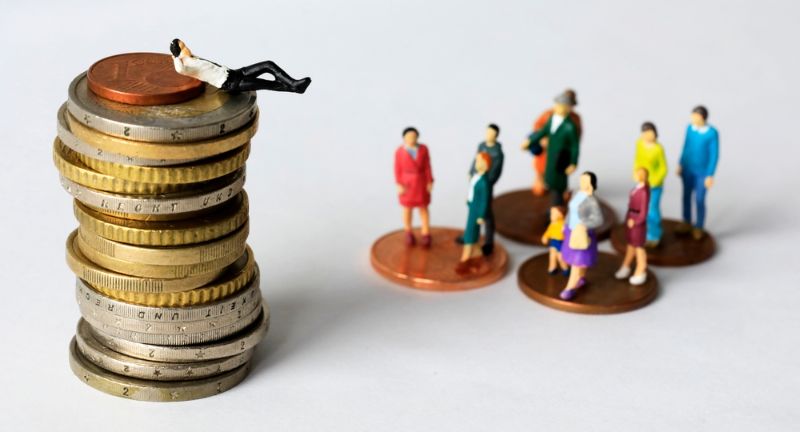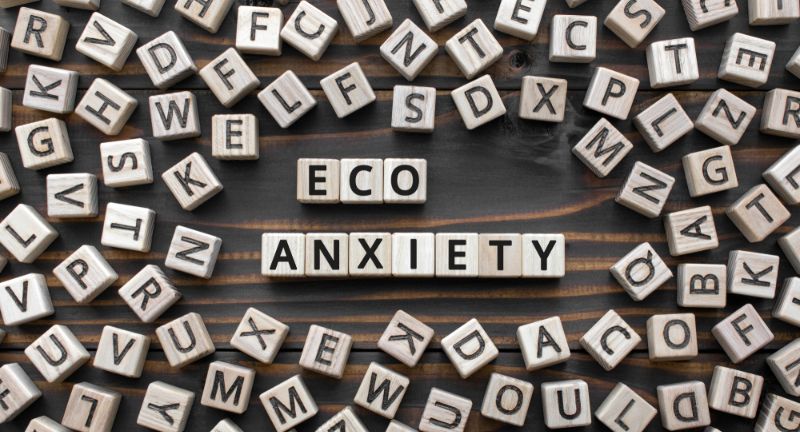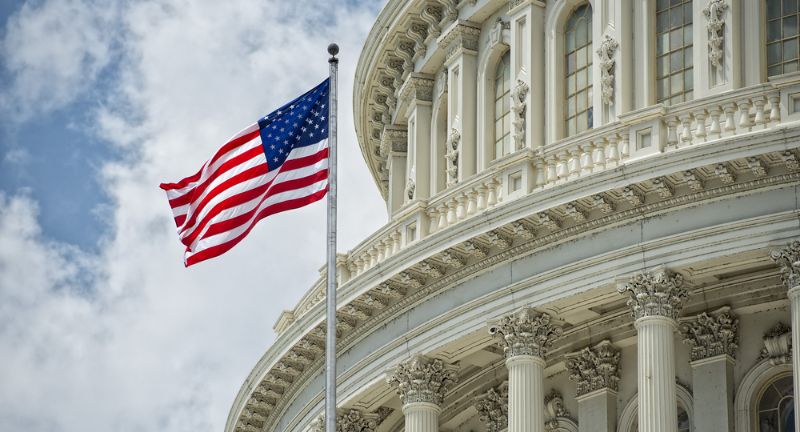Despite advancements in technology, medicine, and overall convenience, many Americans report lower levels of happiness than in past decades. Rising stress, economic pressures, and social challenges have all contributed to this trend. While life has improved in many ways, some modern factors have diminished overall life satisfaction. Here are 24 reasons Americans are less happy than ever before.
Rising Cost of Living

Shutterstock
The cost of housing, groceries, and healthcare has surged in recent years. Many Americans find it challenging to keep up with expenses despite working full-time jobs. This financial strain often leads to stress and anxiety about the future. Managing basic necessities has become a source of worry for millions.
Widening Wealth Inequality

Shutterstock
The gap between the wealthy and the working class continues to grow. This disparity often leaves many feeling left behind and struggling to achieve financial stability. When prosperity feels unattainable, it can lead to frustration and hopelessness. Greater economic balance could contribute to overall happiness.
Workplace Burnout

Shutterstock
Increased work demands and longer hours have led to widespread burnout. Many employees feel overwhelmed, undervalued, and unable to disconnect from work. This chronic stress can negatively affect mental health and personal relationships. Work-life balance remains a challenge for many in the modern workforce.
Decline in Social Connections

Shutterstock
Social isolation has become more common, with fewer Americans participating in community activities or social clubs. Digital communication often replaces face-to-face interactions, reducing emotional connections. Loneliness can significantly impact mental health and life satisfaction. Prioritizing meaningful relationships could help reverse this trend.
Health Concerns and Medical Debt

Shutterstock
While medical advancements have improved health outcomes, access to affordable care remains a struggle for many Americans. Medical debt is a leading cause of financial stress, impacting millions. Fear of unexpected health expenses can create ongoing anxiety. Expanding affordable healthcare access could alleviate some of these burdens.
Social Media Comparison Culture

Shutterstock
Social media platforms often present an idealized version of life, leading to unhealthy comparisons. Many users feel inadequate when comparing their reality to curated highlights. This constant exposure can lower self-esteem and increase feelings of discontent. Limiting screen time and focusing on reality can improve happiness.
Political Division

Shutterstock
Political polarization has reached unprecedented levels, causing tension among families, friends, and communities. The constant stream of divisive news can feel overwhelming and emotionally draining. This conflict often distracts from shared values and common goals. Encouraging civil dialogue can help reduce stress linked to political conflict.
Climate Anxiety

Shutterstock
Growing concerns about climate change have left many feeling anxious about the future. Frequent reports of natural disasters and environmental degradation can feel overwhelming. This anxiety often contributes to a sense of helplessness. Promoting positive environmental action can help shift focus to solutions rather than fear.
Loss of Work Stability

Shutterstock
The rise of temporary contracts, gig work, and job automation has reduced long-term job security for many Americans. Uncertain employment can lead to chronic stress and financial instability. Stable careers once provided consistent benefits and pensions, which are now harder to find. A lack of job security can deeply affect life satisfaction.
Reduced Homeownership Opportunities

Shutterstock
Rising home prices and interest rates have made homeownership increasingly difficult for younger generations. Homeownership has long been a cornerstone of financial stability and wealth-building. Many Americans are forced to rent long-term, feeling like homeownership is out of reach. This barrier can create long-term financial stress and dissatisfaction.
Overstimulation from Technology

Shutterstock
Constant notifications, 24-hour news cycles, and endless social media feeds create overstimulation. This digital overload can lead to anxiety, trouble focusing, and decreased happiness. Many Americans feel the pressure to stay constantly connected, reducing mindfulness. Digital detoxing and setting screen time limits can help alleviate this stress.
Weaker Community Ties

Shutterstock
Once a cornerstone of American life, strong community bonds have weakened over time. Fewer people participate in local events, volunteer work, or neighborhood gatherings. This decline has led to increased isolation and decreased social support. Rebuilding local connections could significantly improve overall happiness.
Increasing Student Debt

Shutterstock
Rising tuition costs have led millions of Americans into significant student debt. This financial burden can take decades to pay off, delaying major life milestones. Debt stress contributes to anxiety and a reduced sense of financial freedom. Addressing the education cost crisis could improve happiness for younger generations.
Declining Physical Health

Shutterstock
Chronic health conditions like obesity, heart disease, and diabetes are on the rise in America. Poor diets, lack of physical activity, and stress contribute to declining health. Physical health issues can directly impact emotional well-being and quality of life. Health education and lifestyle changes can help reverse this trend.
Unrealistic Beauty Standards

Shutterstock
Modern media often promotes unrealistic beauty standards, leading to body image struggles. Social media filters and photo editing can distort reality, harming self-esteem. Many Americans feel pressure to meet impossible physical ideals. Promoting body positivity and self-acceptance can support better mental health.
Increased Noise Pollution

Shutterstock
Urbanization and technological advancements have led to higher noise pollution levels. Loud environments can increase stress and disrupt sleep quality. Peaceful, quiet spaces are increasingly rare, especially in cities. Reducing noise pollution through better urban planning could improve public happiness.
Declining Faith in Institutions

Shutterstock
Trust in government, media, and other institutions has eroded in recent years. Scandals, misinformation, and corruption have fueled public skepticism. This loss of trust can lead to feelings of uncertainty and disillusionment. Restoring transparency and accountability could help rebuild faith and morale.
Decreased Time in Nature

Shutterstock
With busier lifestyles and urban expansion, many Americans spend less time outdoors. Exposure to nature has been linked to improved mood and reduced stress. However, many find it difficult to prioritize outdoor activities. Encouraging nature exposure can promote happiness and mental clarity.
Increased Fear of Crime

Shutterstock
While crime rates have declined, media coverage often emphasizes danger and violence. This heightened focus can create a sense of fear disproportionate to reality. Fear of crime affects daily activities and personal freedom. Balanced reporting and local engagement could reduce unnecessary fear.
Less Time for Hobbies and Creativity

Shutterstock
Many Americans feel they have little time for hobbies and creative outlets. Busy work schedules and financial strain often take priority over personal passions. Engaging in hobbies is known to reduce stress and boost happiness. Encouraging creative activities can lead to a more balanced and fulfilling life.
Increasing Debt Levels

Shutterstock
Credit card debt, personal loans, and mortgages continue to burden many households. High-interest rates make it difficult for people to escape financial stress. Debt can significantly impact mental health and life satisfaction. Encouraging financial education and responsible lending could improve long-term happiness.
Decline in Physical Fitness

Shutterstock
Modern sedentary lifestyles and increased screen time have led to a decline in physical activity. Lack of regular exercise is linked to lower energy levels, poor mood, and chronic health issues. Staying active not only boosts physical health but also enhances mental well-being. Encouraging physical fitness can lead to a happier, healthier population.
Overwhelming Information Overload

Shutterstock
The constant flow of news, social media, and digital content can overwhelm the brain. Information overload makes it difficult to focus, leading to stress and anxiety. The pressure to stay constantly informed can drain emotional energy. Taking breaks from media consumption can significantly improve mental clarity and peace of mind.
Lack of Sleep

Shutterstock
Poor sleep habits have become increasingly common, impacting both physical and emotional health. Sleep deprivation can reduce focus, mood, and overall life satisfaction. Factors like stress, screen time, and work pressures contribute to poor rest. Prioritizing healthy sleep routines can greatly enhance overall happiness.
Conclusion

Shutterstock
While the modern era has brought incredible advancements, it has also introduced new challenges that impact happiness. Economic stress, social disconnection, and global concerns continue to affect emotional well-being. By addressing these issues with empathy and practical solutions, it is possible to create a healthier, happier society. Prioritizing mental health, financial stability, and human connection can make a significant difference.

























































